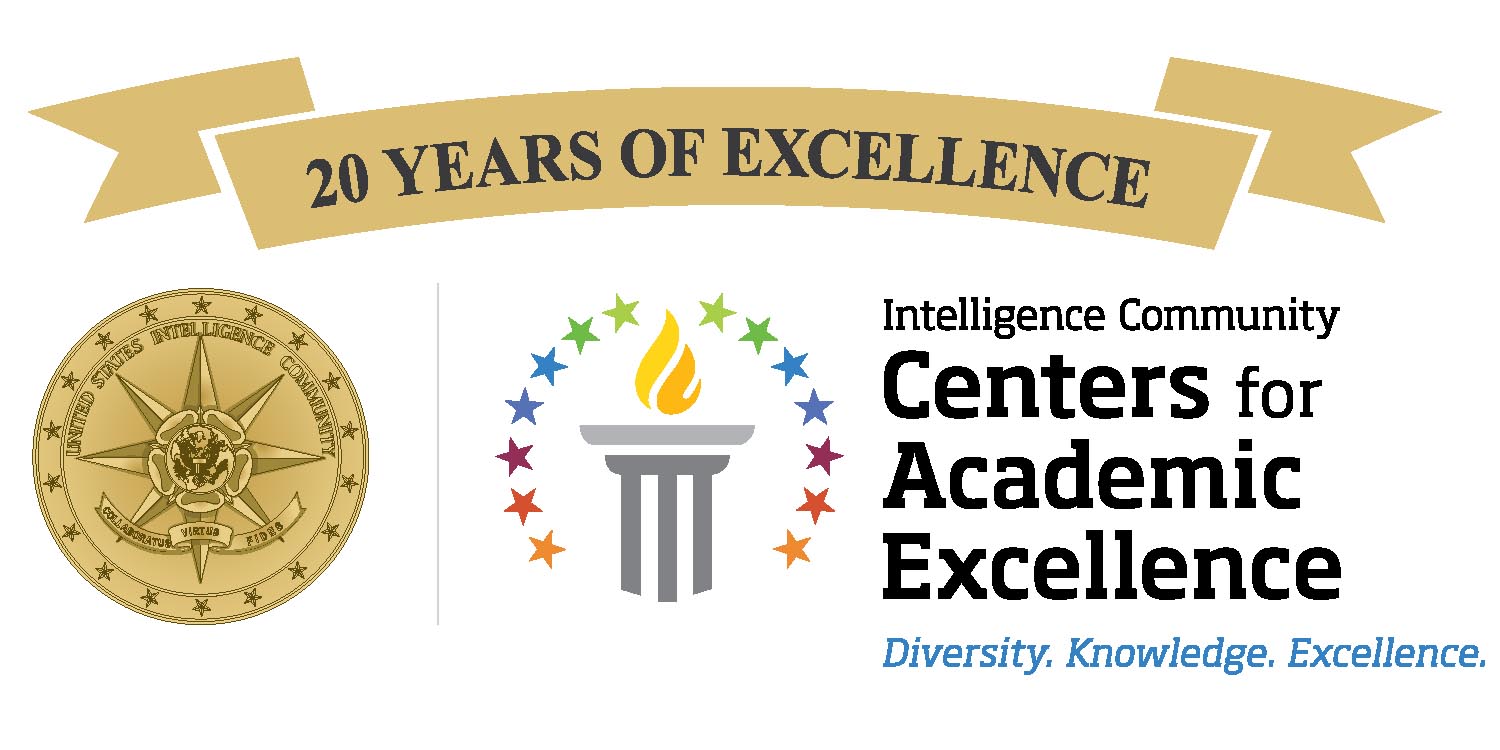IC CAE
CINSER is CSU's Intelligence Community Center for Academic Excellence (IC CAE). There are many career options available in the intelligence community (IC).
What is intelligence?
The Office of the Director of National Intelligence defines intelligence in the following way:
"Intelligence is information gathered within or outside the U.S. that involves threats to our nation, its people, property, or interests; development, proliferation, or use of weapons of mass destruction; and any other matter bearing on the U.S. national or homeland security. Intelligence can provide insights not available elsewhere that warn of potential threats and opportunities, assess probable outcomes of proposed policy options, provide leadership profiles on foreign officials, and inform official travelers of counterintelligence and security threats."
According to the 2023 National Intelligence Strategy, the mission of the IC is as follows:
"The U.S. Intelligence Community provides timely, rigorous, apolitical, and insightful intelligence and support to inform national security decisions and protect our Nation and its interests."
The intelligence community is always seeking new talent and hires its workforce from many different fields of study including psychology, criminal justice, foreign language, IT, nursing, chemistry, english, pharmacy, engineering, geography, art, education, business and many other fields.
Intelligence Agencies
Intelligence for national security is carried out through the activities conducted by 18 different agencies:
- Office of the Director of National Intelligence (ODNI)
- Central Intelligence Agency (CIA)
- Defense Intelligence Agency (DIA)
- National Security Agency (NSA)
- National Geospatial-Intelligence Agency (NGA)
- National Reconnaissance Office (NRO)
- Army Intelligence
- Navy Intelligence
- Marine Corps Intelligence
- Air Force Intelligence
- Space Force Intelligence
- Department of Energy’s Office of Intelligence and Counter-Intelligence (OICI)
- Department of Homeland Security’s Office of Intelligence and Analysis (I&A)
- U.S. Coast Guard Intelligence
- Department of Justice’s Federal Bureau of Investigation (FBI)
- Drug Enforcement Administration’s Office of National Security Intelligence (ONSI)
- Department of State’s Bureau of Intelligence and Research (INR)
- Department of the Treasury’s Office of Intelligence and Analysis (OIA)
While the IC hires from talent pools in many disciplines there are two areas of critical need - critical foreign languages and critical technologies.
Critical Foreign Languages
The intelligence community is always seeking to employ individuals who speak critical foreign languages. Some of the critical foreign languages include: Akan/Twi, Amharic, Arabic, Armenian, Belarusian, Bengali, Cantonese, Croatian, Haitian Creole, Hausa, Hindi, Indonesian, Japanese, Korean, Kurdish, Malay, Mandarin, Nepali, Persian, Polish, Punjabi, Russian, Sinhala, Swahili, Tagalog, Tamil, Thai, Ukrainian, Wolof, Yoruba, Zulu and many more (a more comprehensive list is here).
You can perform a self-assessment of your foreign language proficiency using an assessment tool here.
For more opportunities to develop skill in a foreign language, consider applying for a Boren Fellowship Award.
Critical and Emerging Technologies
The intelligence community has an acute need for individuals with expertise in critical and emerging technologies. The National Science and Technology Council has identified the following critical and emerging technologies:
- Advanced Computing
- Advanced Engineering Materials
- Advanced Gas Turbine Engine Technologies
- Advanced Manufacturing
- Advanced and Networked Sensing and Signature Management
- Advanced Nuclear Energy Technologies
- Artificial Intelligence
- Autonomous Systems and Robotics
- Biotechnologies
- Communication and Networking Technologies
- Directed Energy
- Financial Technologies
- Human-Machine Interfaces
- Hypersonics
- Networked Sensors and Sensing
- Quantum Information Technologies
- Renewable Energy Generation and Storage
- Semiconductors and Microelectronics
- Space Technologies and Systems
Information on Intelligence Careers
For more information on careers in intelligence:
US Intelligence Community Careers
Intelligence Careers Job Exploration Tool
The Intelligence Jumpstart Podcast
National Intelligence University hosts the Intelligence Jumpstart Podcast wih Jane Doe. Listen to the podcast here.
Intelligence Community Center for Academic Excellence (IC CAE) Newsletter
Intelligence Community Center for Academic Excellence
Working in the IC - Videos from the CIA
Here are some testimonials about what it is like working in the IC. (Note: clicking on the video thumbnails below will take you to YouTube.)





 All Rights Reserved
All Rights Reserved